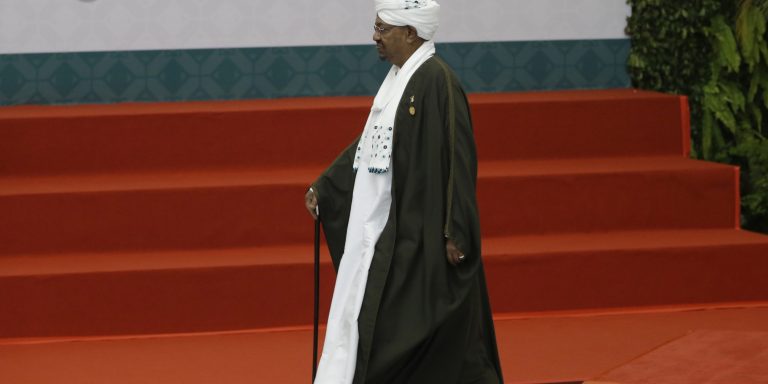INTELBRIEF
May 2, 2018
IntelBrief: Sudan Comes in From the Cold

- Sudan is emerging as a “success story” for U.S. counter-terrorism policy because it now cooperates against terrorist groups rather than harbors them.
- Most U.S. sanctions on Sudan were lifted in late 2016 and Sudan is close to being removed from the U.S. ‘terrorism’ list.
- Seeking wealthy benefactors, Sudan has moved closer to the Persian Gulf states and out of Iran’s strategic orbit.
- Major international players have largely chosen to ignore Sudan’s past human rights abuses and the International Criminal Court (ICC) warrant for its leader, President Omar Hassan al-Bashir.
.
Sudan has long been known primarily as the base for Osama bin Laden and his then fledgling Al Qaeda terrorist organization from 1991-1996. As a consequence of that, as well as its alignment with Iran and Iran-supported armed factions such as Hamas and Hezbollah, Sudan was placed on the U.S. list of state sponsors of terrorism (‘terrorism list’) in 1993. In subsequent years, its brutal repression of rebels in the Darfur region earned it a comprehensive U.S. trade embargo in 1997 and an International Criminal Court (ICC) arrest warrant for Sudan’s leader, Omar Hassan al-Bashir, on charges of genocide and war crimes. In August 1998, the United States launched strikes on the suspected Al Qaeda-linked Al Shifa pharmaceutical factory in Khartoum, Sudan’s capital, with simultaneous strikes on suspected Al Qaeda training camps in Afghanistan.
Over the past few years, Sudan has undertaken significant policy shifts and political realignments. U.S. officials have recently maintained Sudan to be a cooperative partner of the United States on counterterrorism and that the country has ceased tolerating or assisting terrorist organizations—including Hamas—within its borders. In large part because of its counterterrorism cooperation, most U.S. sanctions on Sudan, including the U.S.-Sudan trade embargo, were permanently lifted in October 2017. It appears that the Trump Administration is also laying the groundwork to remove Sudan from the terrorism list in the near future, a move that would leave only Syria, Iran, and North Korea as listed states.
The recent U.S. praise for Sudan also flows from Sudan’s geopolitical shift away from Iran and toward the U.S.-allied Persian Gulf states. From 1993 until 2013, the Islamic Revolutionary Guard Corps–Qods Force (IRGC-QF) helped develop Sudanese pro-government militia forces and Iranian pilots assisted Sudan’s air force. Iran used Sudan as a transshipment point to arm Hamas militia forces in the Gaza Strip, which attracted occasional Israeli airstrikes on Iran-linked targets inside Sudan. However, Iran’s isolation, as well as offers of investment in Sudan by the Sunni-led Gulf states, caused Sudan to reconsider its alliance with Iran. In late 2014, Sudan closed all Iranian cultural centers and expelled Iranian diplomats on the grounds that Iran was using its presence in Sudan to promote Shi’a Islam. In March 2015, Sudan completed the realignment by joining the Saudi-led Arab coalition against the Iran-backed Houthi rebels in Yemen, including deploying several hundred fighters to Yemen in that effort. In early 2016, Sudan broke diplomatic relations with Iran in sympathy with a Saudi-Iran dispute over the Saudi execution of Shi’a dissident cleric, Nimr al-Nimr.
Sudan’s counterterrorism cooperation and strategic realignment has caused the international community to largely overlook the Sudanese government’s human rights abuses, including its brutal repression of rebels in the Darfur region. President Bashir has been able to attend summit meetings in Africa, as well in Iraq, Russia, and other countries, despite the 2009 and 2010 ICC warrants for his arrest for genocide and war crimes in Darfur. And, various European countries reportedly have downplayed the abysmal record of Sudanese security forces to work with them to prevent the movement of migrants from East Africa to Europe.
.
For tailored research and analysis, please contact: info@thesoufancenter.org
[video width="960" height="540" mp4="https://thesoufancenter.org/wp-content/uploads/2018/05/Final-Edit-1-185.mp4" poster="https://thesoufancenter.org/wp-content/uploads/2018/05/AP_17086364745756-1-e1525254457536.jpg"][/video]